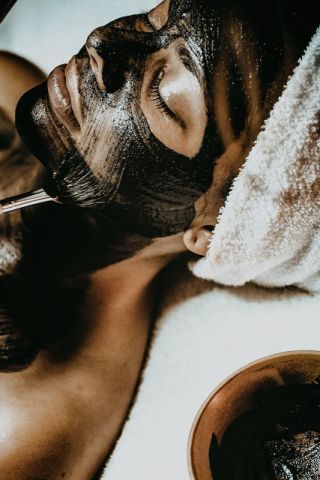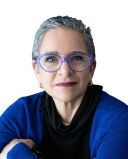Guilt
Why Do I Still Feel Guilty for My Privilege?
Personal Perspective: As I reflect on privilege and guilt, can you relate?
Posted May 1, 2024 Reviewed by Gary Drevitch

I have so many privileges. Being able to write this post about privilege is a privilege. How many women through eternity had occasion to gain literacy, write, or climb high enough on Maslow’s hierarchy to scrape past grinding lives of food, shelter, and childcare? Why should their stories be any less visible than mine? Why?
Absolutely no reason.
I was able to go to school, lots of schools, and then more schools. I learned things, I spent a 40-year midwifery/psychiatric-nurse-practitioner career working hard to help others, and now I write things, and sometimes they get published (like this post). All of this makes up a fine definition of privilege.
Lately, I’ve grown aware of privileges I’m too embarrassed to write about. Which makes me realize: I need to write about them.
It started when I began paying someone to post on social media for me. I rarely got around to posting and, as a writer, social media is one of the sole ways anyone can find you as a writer and read your work.
Yet why should I be able to pay for social media, I gnashed my teeth wondering. I conferred with a couple of my adult kids, knowing they would tell me the raw truth. People pay for social media all the time, they said, so what’s the problem? If I felt guilty, I could donate to a charity like Write Around Portland that “facilitates storytelling in underheard communities.” But truth: I don’t want to give to another charity. I give to many. And I am the sole remaining parent of four kids. My children are my charity. I want to leave something for them when I’m gone.
I author everything my social-media guru posts. She (we’ll call her Laura) tells me what to write, adds tags and all that, then posts. “Take pictures on your trip and write a blurb,” she might write me.
“But I feel guilty posting a about my trip,” I scribe back. “It’s super-privileged and that’s how everyone poses on social media, writing about their perfect selves. It’s a trap, and makes their ‘friends’ feel bad!”
Laura asked for a post about my writing program: “I think a post about the Harvard program would be excellent. It’s another illustration of your expertise & constant thirst for learning.” (That’s a direct quote from her email.)
“But it sounds so privileged!” I wrote back, whining. Again.
After about five rejoinders like this I realized the problem was me. I’m a quintessential, white, financially comfortable, able-to-retire-at-63, not-quite-suburban-so-I-can-still-be-hip, hetero, liberal, left-coast, American woman. I’m Jewish, yes, which gives me a lifelong familiarity with antisemitism and masking (before I knew what that was), and I have other features adding intersectionality. Like standing well under 5’ tall (technically, I’m a dwarf), which causes several issues in my own kitchen, let alone beyond; having a lifelong illness; parenting a young-adult with high-needs autism; vigorously endorsing—and/or many of my family members endorsing—multiple DSM diagnoses, to name a few.
But I don’t want to rationalize, and the fact remains: I look white in Oregon, where most people don’t recognize someone who looks like I do and has a last name like “Solomon” has a very good chance of being Jewish. So, I pass.

Might my privileged guilt serve as a textbook definition of white fragility? Maybe.
Then why out myself? Why admit, for instance, guilt that I “don’t do enough” to transmute privilege? Guilt for missing manis, pedis, and massages during COVID, and instead picking my cuticles to shreds, my lower back aching, but not admitting it during Karen-ing times? Guilt for missing the lovely woman who cleans my house during lockdown because it was too damned privileged to say aloud?
Bad secrets are bad; they eat their own container, someone once said. So yes, I’m outing myself to feel better. To air proverbial clean, or dirty, laundry: White fragility. My bad.
But that’s not all.
As a therapist, I tried never to ask a patient to do something I wouldn’t do. I worked on exercise, sleep hygiene, eating well; reduced screen time, blah blah blah. I tried to walk the so-called talk. It was critical to my personal and professional integrity. I did alright, I think.
But even therapists (maybe, especially therapists) have unconscious thoughts and feelings. And good therapy, as Freud said—I don’t love him, but Freud did say a few good things, and this is one—good therapy makes “the unconscious conscious.” Yup. I agree.
So when I helped patients with guilt about privilege, I told them they could “stop shoulding on themselves”; that their guilt didn’t help them or anyone else they felt bad about with less privilege. Guilt—judging our behavior as bad—is only helpful if it promotes positive behavior change. (Shame, judging ourselves as bad, is a different issue.)
If it was guilt, were my patients going to change their behavior because of it? Were they—or was I—going to ask the woman who cleans to stop now that we’re not in a pandemic, thereby detracting from her livelihood? Or not have a massage to help my scoliosis? Or stop vacations that help me renew, so I come home a better parent, friend, and contributor?
No, I wasn’t. I’m not. It wouldn’t help anyone a whit, and might actually hurt others, if I or my patients (or you) stop self-care or spending money for no good reason. So we may as well drop the guilt.
And on second (or sixth, or 14th) thought, guilt has helped me change. Along the way, I taught trauma-informed self- and patient-care to healthcare workers. Sat on a taskforce to improve mental health for vulnerable communities and open paths for traditionally marginalized populations to train in health professions. Worked on the Oregon Wellness Program, which offers free counseling to health workers across the state, keeping them well. Had a sliding scale in my psychiatric practice for those who needed it. And so on. I didn’t do that work because I felt guilty, but because I was driven. To contribute.
So I’m working on letting the guilt go. If I’m called to do more, I will. But for right now it’s good enough. It’s okay to rest. To help through writing (even if I do pay Laura). To own what I do as what I can do.
And I hope my children (who certainly won’t be crazy enough to have four kids) will use any privileges offered them to pay it forward too. To help others.
In ways seen and unseen.




